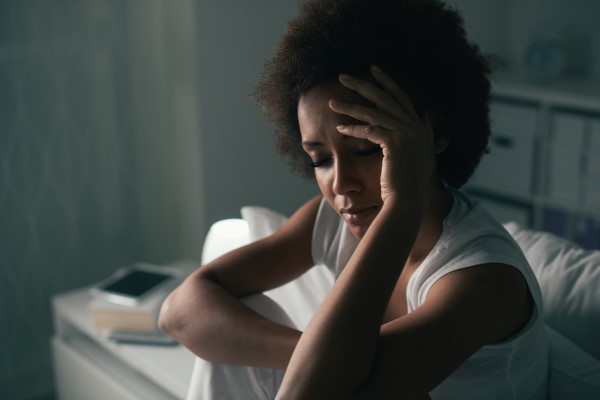Visit a Psychiatrist for OCD Treatment

While obsessive-compulsive disorder (OCD) can often feel overwhelming, it is possible to find relief from its symptoms. A psychiatrist can provide OCD treatment in a variety of forms. Whether you are looking to try medication, begin exposure and response prevention therapy, or are unsure where to start, a psychiatrist can help you find a treatment plan that works for you.
What is OCD?
According to the Diagnostic and Statistical Manual of Mental Disorders, Fifth Edition (DSM-5), OCD is defined as either having obsessions (recurrent, unwanted thoughts), compulsions (repetitive behaviors meant to get rid of the obsessions, prove them false, or otherwise neutralize them), or a combination of the two. A combination is the most common. The obsessions and compulsions must be time-consuming and harm the client's daily life to be considered OCD.
Obsessions can range from a fear of contamination to a fear of harming others, being in the wrong relationship, or acting immorally, among others. Compulsions may include touching items in a particular order, doing a task several times, asking for reassurance that obsessions are false or repetitive handwashing, checking, or praying, etc. It is not simply about wanting organization for one's possessions or routine.
OCD treatments from a psychiatrist
If a psychiatrist determines that a client has OCD, they may recommend a few types of treatment. The most common OCD treatment is a combination of medication and exposure and response prevention (ERP) therapy. However, if the client does not see their symptoms improve, the psychiatrist may recommend alternative treatments.
Medication
Prescription medication is a safe, effective way to manage OCD symptoms. It can reduce the anxiety associated with obsessions, making it easier to confront them in therapy and not respond to them in day-to-day life. A psychiatrist may prescribe selective serotonin reuptake inhibitors (SSRIs), antipsychotic medications, or tricyclic antidepressants. Citalopram, clomipramine, escitalopram, paroxetine, and sertraline are the most common.
ERP therapy
Exposure and response prevention focuses on helping clients overcome their obsessions by exposing them to whatever triggers them (such as a dirty doorknob). Once triggered, the client will then work to sit with the resulting anxiety until it fades. They will also either reduce the time spent on a compulsion, delay it, or forgo it altogether.
The end goal of ERP is to teach the client how to better respond to obsessions so that they can break the cycle of OCD. The more a person engages in compulsions, the worse the obsessions and compulsions become in the long run. This is because the brain will falsely learn that an obsession is a threat. Therefore, to manage OCD, the client will need to fight back against compulsions and remember that obsessions are not emergencies.
Transcranial magnetic stimulation (TMS) for OCD
Transcranial magnetic stimulation, or TMS, is a brain stimulation technique that uses magnetic coils and the brain's electrical activity to treat mental health conditions. The U.S. Food and Drug Administration has approved it as an OCD treatment. However, a psychiatrist is unlikely to recommend TMS before the client has tried ERP and medication. They may even recommend pairing ERP with alternative therapies before trying TMS.
Find peace from OCD
OCD may be a chronic, isolating mental disorder, but you are not alone. Our Houston psychiatrist will work to bring you relief with OCD treatment. Call today to schedule a consultation.
Request an appointment here: https://www.christiesfamilyhealth.com or call Christies Family Health LLC at (832) 915-1818 for an appointment in our Houston office.
Check out what others are saying about our services on Yelp: OCD Treatment in Houston, TX.
Related Posts
The most common types of depression treatment are psychotherapy (i.e., cognitive-behavioral therapy) and medications (i.e., SSRIs). When standard depression treatment fails, then alternative options may be recommended by a psychiatrist.A psychiatrist can help with the treatment of treatment-resistant depression (TRD). They can help patients with a milder form of depression as well. The following is…
Depression is a type of mood disorder that affects how a person feels, acts, and thinks daily. The good news is there are depression treatments that psychiatrists offer to help improve the symptoms. This review closely examines treatment options, symptoms that may improve through treatment, and what patients can expect throughout the treatment process.The symptoms…
Psychiatrists help patients with depression create a treatment plan that fits their needs. Treatment plans typically involve a combination of treatments, which possibly include psychotherapy, lifestyle improvements, and medication.From talk therapy to electroconvulsive therapy, there are many approaches to depression treatment. This review highlights and compares some of the more common treatments involved with a…
Post-traumatic stress disorder (PTSD) is a mental health condition that can develop after experiencing or witnessing a traumatic event. PTSD treatment aims to reduce symptoms and help people function better in their daily lives. It also focuses on improving their overall health and well-being. PTSD often causes anxiety, flashbacks, and emotional distress, making effective treatment…







